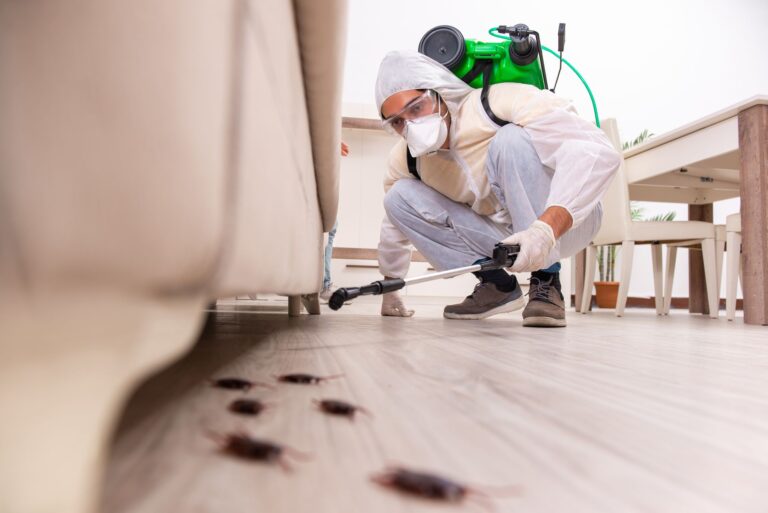
Key Takeaways
- Regular maintenance and cleanliness are crucial in deterring pests.
- Sealing entry points prevents pests from accessing your home.
- Natural remedies can be effective alternatives to chemical treatments.
Table of Contents
- Maintain Cleanliness
- Seal Entry Points
- Eliminate Moisture
- Proper Food Storage
- Landscaping and Yard Maintenance
- Natural Pest Deterrents
- Regular Inspections
Maintaining a pest-free home goes beyond comfort—it’s vital for health, hygiene, and the structural integrity of your property. Without proactive prevention, pests like ants, roaches, rodents, and termites can quickly become a major problem. Integrating smart prevention techniques is key for homeowners looking to outsmart these unwelcome guests before they gain a foothold. If you notice the early signs of an infestation or want expert guidance, consulting with a local exterminator in Concord can provide tailored solutions and professional peace of mind.
Effective pest control blends ongoing household habits, strategic home repairs, and plenty of vigilance. Establishing a routine to deter pests from entering in the first place not only saves you money and stress in the long run but also fosters a safer, cleaner environment for your family. Below, you’ll find a guide to actionable steps and natural strategies that align with the most up-to-date advice from health experts and pest control professionals.
Maintain Cleanliness
One of the simplest and most effective ways to prevent pest invasions is by keeping your home meticulously clean. Insects and rodents primarily hunt for food and water, so eliminating crumbs, spills, and garbage removes their main attractions. Wipe down kitchen surfaces daily, sweep and mop floors regularly, and avoid leaving dirty dishes overnight. Store leftovers and pantry goods in sealed containers, and ensure bins are emptied frequently to reduce odors and mess. Don’t overlook less-trafficked areas, such as under appliances and in the backs of cabinets, where food debris can accumulate unseen.
Seal Entry Points
Even the cleanest homes can fall prey to pests if there are easy ways for them to get in. Close inspection and repair of your home’s exterior are crucial. Check for cracks around windows, doors, and the foundation. Be vigilant about gaps near utility pipes, dryer vents, and attic access points. Caulking, weather stripping, and mesh screens are effective barriers for many household pests.
Eliminate Moisture
Many pests—including cockroaches, silverfish, and termites—are especially drawn to moisture. Addressing leaks and damp zones doesn’t just influence pest control, but also protects your home from potential water damage and mold growth. Fix leaking faucets, sewer lines, or roof leaks as soon as possible. Use dehumidifiers in basements or crawl spaces, and ensure bathrooms, kitchens, and laundry spaces are well-ventilated. Clean gutters regularly and direct downspouts away from the foundation to reduce ground moisture near your home.
Proper Food Storage
Improperly stored food is an open invitation to pests. Invest in airtight containers for flour, pasta, grains, pet food, and snacks. Avoid storing food—including produce—on countertops for extended periods, and rotate the contents of your pantry to prevent long-forgotten items from attracting insects or rodents. Pet food should likewise be placed in sealable bins and not left out overnight.
Landscaping and Yard Maintenance
The state of your yard directly influences what enters your home. Keep trees, shrubs, and plants trimmed several feet from the exterior walls and roofline to prevent branches from doubling as pest “bridges.” Remove piles of leaves, weeds, and debris, which can harbor nesting sites for insects and rodents. Firewood should be stored at least 20 feet from your house and kept off the ground. Consider minimizing mulch near your foundation; opt for rocks or gravel instead, as these materials do not retain moisture as easily and are less appealing to burrowing pests. Also, make it a habit to search for and empty any sources of standing water, which can be breeding grounds for mosquitoes and other pests.
Natural Pest Deterrents
Natural deterrents can be surprisingly effective for those who wish to avoid harsh chemicals. Essential oils such as peppermint, citronella, eucalyptus, and tea tree are known to repel various insects and small pests—simply add several drops to water in a spray bottle and spritz around entryways and problem spots. Diatomaceous earth, a fine powder made from fossilized remains of algae, can be sprinkled along baseboards or under sinks to eliminate crawling insects mechanically rather than chemically. A solution of equal parts water and white vinegar makes a potent spray to combat ants. Regularly using these natural control measures can help create an unwelcoming environment for pests without risking the health of pets, children, or sensitive family members.
Regular Inspections
Prevention is much easier—and less costly—when you catch pest problems early. Set aside time each month to inspect the sanctuary spaces pests often prefer, such as basements, attics, crawlspaces, and behind large appliances. Look for droppings, gnawed materials, nesting debris, or unusual stains and odors. Installing sticky traps in out-of-the-way corners can serve as an early-warning system for emerging problems. Additionally, inspect any packages, grocery bags, or storage boxes brought in from outside—many pests can hitch a ride inside these items. Attentiveness helps you act swiftly and keep minor problems from spiraling into infestations.